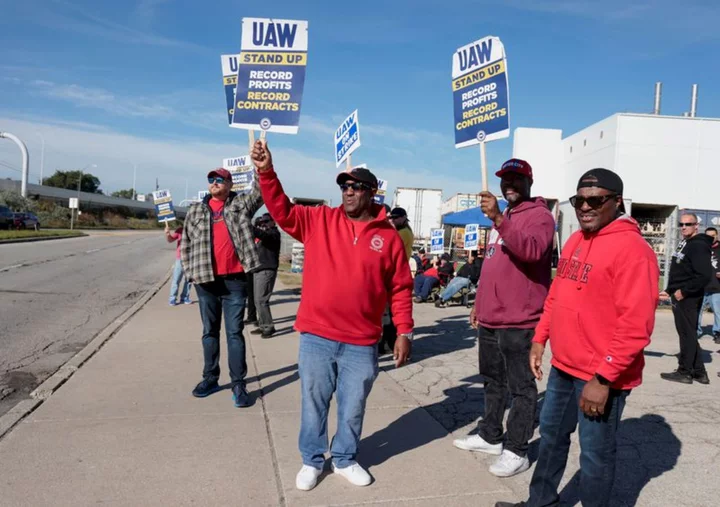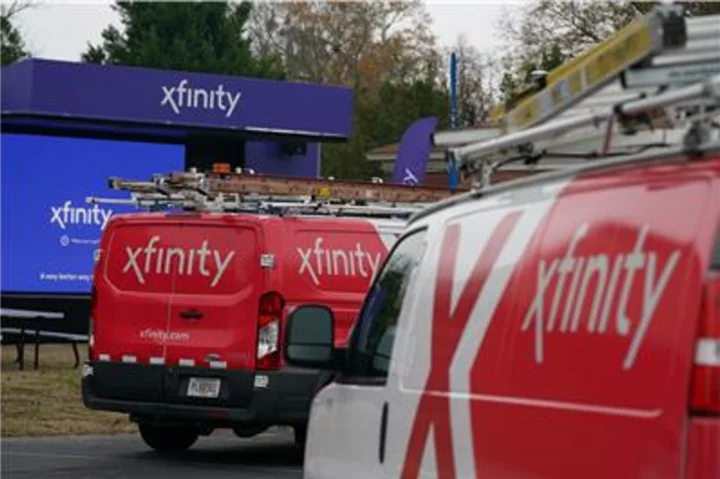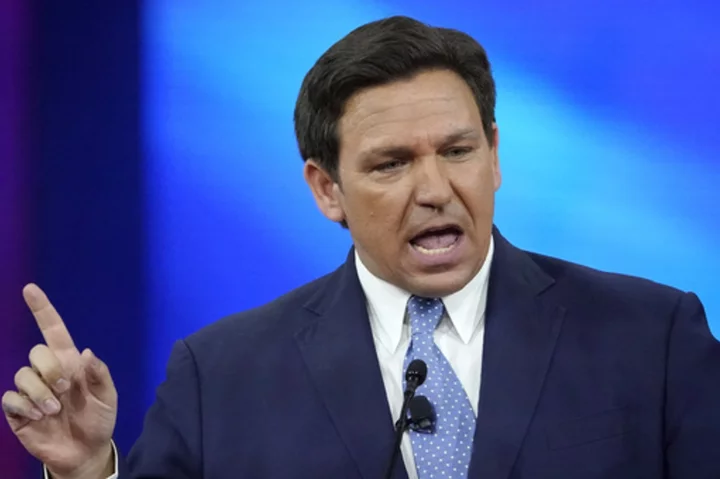By Ben Klayman
TOLEDO, Ohio (Reuters) -A Toledo grocery store parking lot was full of Jeeps and Fords on Tuesday morning in a show of strength by auto workers on strike from Stellantis's nearby Jeep plant.
Dozens set out in an Ohio-to-Michigan convoy to rally support for their walkout, many Jeeps adorned with signs reading "No Justice, No Jeeps."
"We don't get no profit sharing. We don't get full benefits. I get paid $16.66 (an hour)," said Esperanza Ledesma, 32, of Toledo, a temporary employee who has worked at the Jeep plant for a year. "I make more waitressing. You know what I'm saying? I'm struggling."
The nearly week-old United Auto Workers strike against Ford, General Motors and Stellantis is viewed as a signal of the strength of the U.S. labor movement that has garnered national support from Americans.
The UAW members from two striking plants gathered in Toledo were rolling out for the one-hour, 45-mile (72 km) drive to Wayne, Michigan, where Ford workers also walked off the job last week.
UAW workers have numerous demands, including higher pay, with many most concerned about the tiered wage structure that they say has created a yawning gap between newer and older employees. Many work two jobs to make ends meet.
Ledesma was hitching a ride in a 2021 Jeep Wrangler for the journey. Her colleague Roxanne Stadtfeld, 58, of Monroe, Michigan, said she earns $19.28 an hour and supplements her income by delivering food for DoorDash.
Stadtfeld had her 2019 Dodge Journey for the route, which snakes along the west bank of Lake Erie up into Michigan. Many were traveling in models that these UAW members produce and are among the most profitable vehicles for Ford, GM and Stellantis.
They are also the most popular. In Michigan, Ohio and Missouri, the three states where workers are currently striking, models made by the Big Three dominate the leaderboard of new auto registrations. Ford F-Series pickup trucks are on top in all three states, according to S&P Global Mobility data.
The United States is still the second-largest car market in the world, trailing only China. U.S. automakers have over the years shifted increasingly to manufacturing heavy pickup trucks and SUVs that have higher margins than smaller vehicles.
UAW leaders say they deserve a greater percentage of company profits, while executives fear squeezed margins as a result of higher labor costs and lower-profit electric vehicles. Some 12,700 of the UAW's 150,000 total members who work at the Big Three are on strike, but more could walk off the job in coming weeks if progress is not made.
Union membership has fallen steadily over several decades in the United States. However, unions representing workers in the airline, rail, port and retail industries have increasingly been flexing their muscles in recent years as inflation has risen and low unemployment has given labor more power.
Picketers at the Toledo plant were joined by other union leaders on Tuesday, including Randi Weingarten, president of the American Federation of Teachers, and AFL-CIO head Liz Shuler.
"Nobody has a magic wand. No one can just say, 'Companies act responsibly or fairly with workers.’ That’s why you have this struggle," Weingarten said.
Among those on the line were Brandon Cappelletty, 25, a temporary employee with Jeep for 4-1/2 years, who works in the paint shop on Gladiator pickups.
"I'm 25 and the pay isn't there, so I can't even move out of my parents' house," he said.
Cappelletty estimated his net pay in 2022 at about $37,000, working six or seven days on 10-hour shifts on some weeks. He was holding a sign that said "End Tiers."
(Reporting by Ben Klayman in Toledo, Ohio; additional reporting by Joe White in Detroit; writing by David Gaffen; Editing by Jamie Freed)









